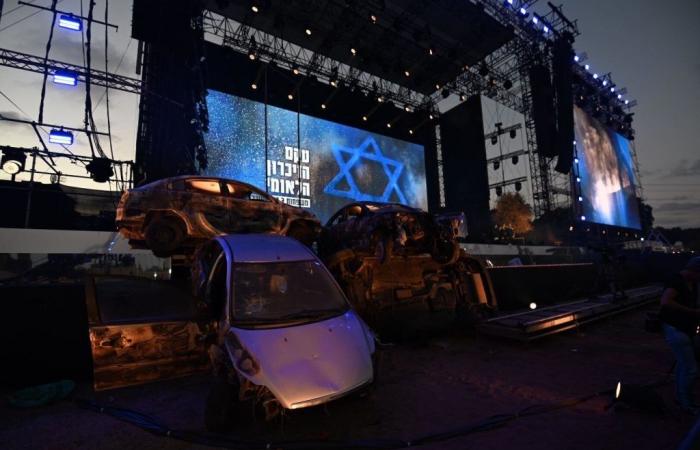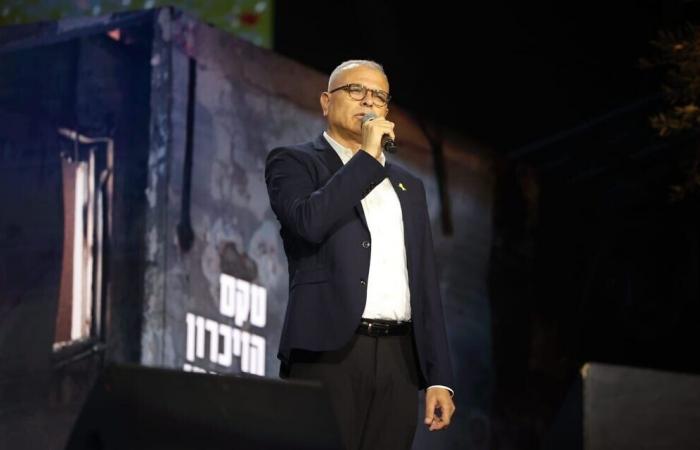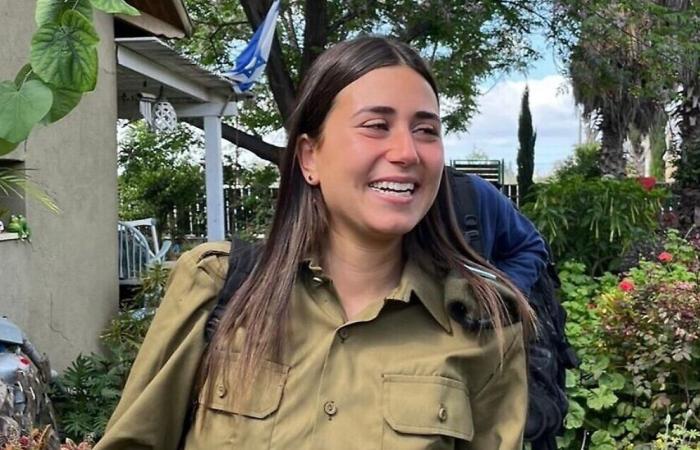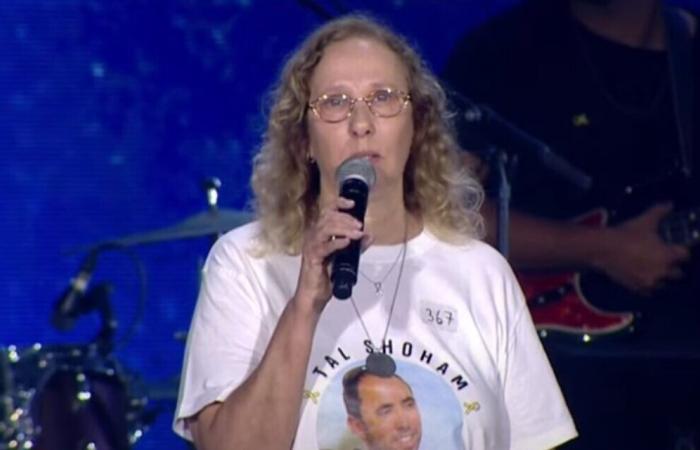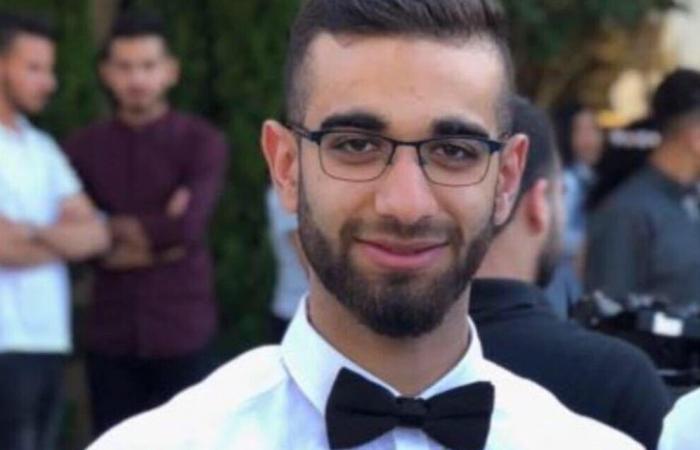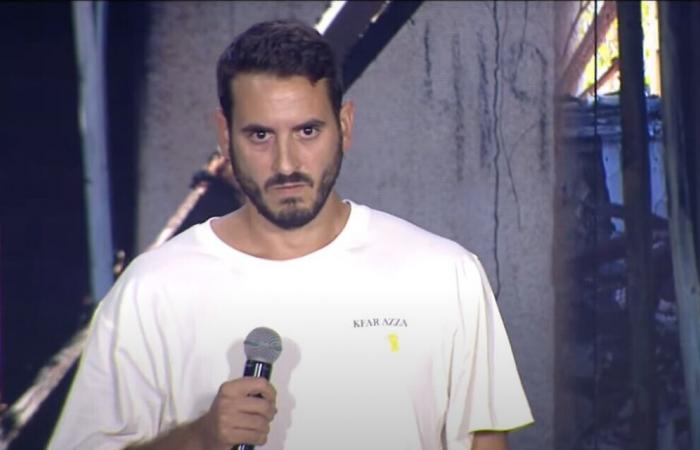The commemoration ceremony organized by the families of the victims of the pogrom perpetrated by the Palestinian terrorist group Hamas on October 7 was held in HaYarkon Park, Tel Aviv. It was broadcast on Israeli television channels and dozens of foreign television channels.
This is the first of two ceremonies on Tuesday evening, the official ceremony was held at 9:15 p.m. The latter, organized by Transport Minister Miri Regev, was surrounded by controversy, with government critics saying it should not oversee a ceremony commemorating its failures of a year ago.
Nearly 40,000 people had planned to attend the event at Yarkon Park, but it ended up being attended by a limited number of people due to an order from the Home Front Command that limited gatherings to 2,000 people in Tel Aviv due to the continued threat of rocket attacks.
Receive our daily edition for free by email so you don’t miss the best news. Free registration!
During the ceremony, the camera turned to the sad faces of loved ones and three giant screens broadcast the names of those murdered on October 7 and in the months following the barbaric and sadistic Hamas assault.
The hosts of this event – Hanoch Daum and Rotem Sela – opened the ceremony by telling the stories of fallen soldiers. The father of Tzvi Granot, a soldier who died in combat, said the Kaddish – the mourning prayer – in front of the crowd.
Relatives of victims, evacuees and relatives of hostages appeared in videos, telling in verse what happened to them on October 7.
Or Gat, son of Kinneret Gat, murdered on kibbutz Beeri and younger brother of Carmel Gat, taken hostage and brutally executed in captivity, said a few words about his big sister in a video.
“This should never have happened,” he said. “His case moved so many people, it should never have happened. »
Gat said he found some comfort in the family members who returned, his other brother and his niece who escaped the terrorists and also his sister-in-law, taken hostage and released at the end of November.
Videos and stories were interspersed with songs performed by Israeli artists, such as Gali Atari or Corin Allal, who sang “Ein li eretz aheret” – “I have no other land” -, including the audience, dressed in “Bring Them Home” t-shirts or bearing the photo of their loved ones, repeated the words.
Gali Atari and Corin Allal performing “I have no other land” during the commemoration of the October 7 pogrom organized by families. (Credit: Video screenshot)
Allal played the acoustic guitar in a painful duet, with photos from this past year as a watermark.
“I don’t have another country, even if my land burns,” the two women intoned before Rita sang, “One day it will happen, without us realizing it, something will change, something will happen. will relax in us.”
Rafi Ben Shitrit, whose son, Staff Sergeant Shimon Alroy Ben Shitrit, was killed on October 7 while trying to repel Palestinian Hamas terrorists in southern Israel, called for the creation of a commission investigation into the pogrom.
Prime Minister Benjamin Netanyahu has resisted calls for such an investigation, saying any investigation should wait until after the war. His critics say he is trying to limit the scope of an investigation, fearing it could damage his reputation.
Rafi Ben Shitrit, whose son was killed on October 7, speaking at the commemoration ceremony for bereaved families marking the first anniversary of the pogrom, October 7, 2024. (Credit: Commemoration ceremony for bereaved families)
“The legacy of the fallen, including Alroy, in these terrible days, demands that we undertake a national examination of conscience. The beginning of healing comes from accepting responsibility,” he said.
“My beloved son and other heroic soldiers took responsibility, sacrificed and gave their lives. From the bottom of my aching heart, out of love and concern for this country, and not for political reasons, I request from this rostrum for the formation of a State Commission of Inquiry, to investigate thoroughly and extensively on the disaster of October 7,” he added.
The crowd, which remained completely silent throughout the ceremony, applauded wildly.
“In the name of my missing son, I ask that we be worthy, that we be united. »
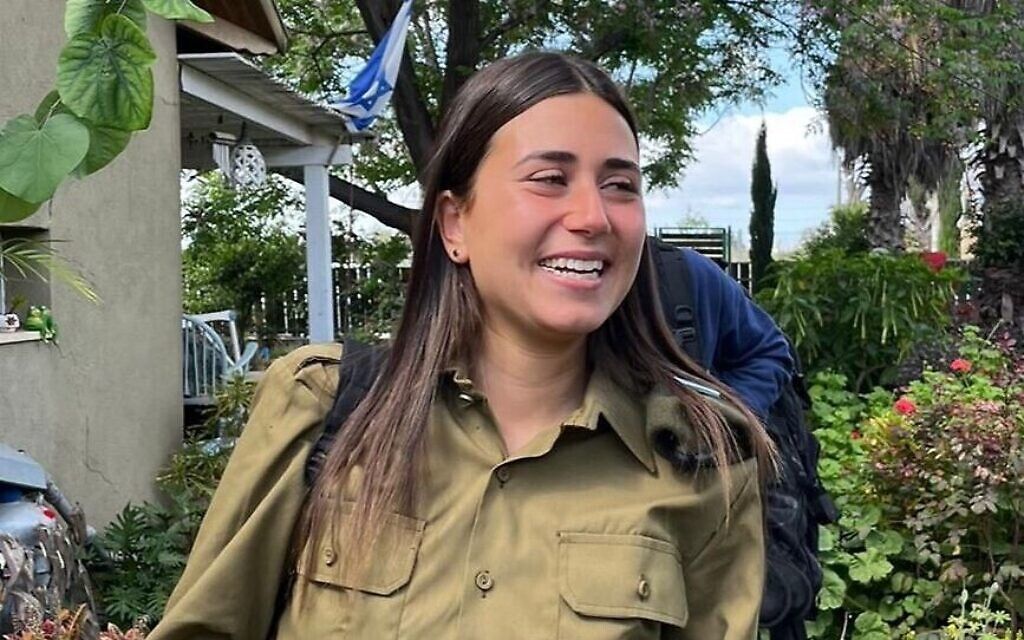
Corporal Hadar Cohen, killed in Nahal Oz on October 7, 2023. (Credit: Israeli Army)
Several parents present at the ceremony of the bereaved families spoke about their children murdered on October 7, including the tazpitani – surveillance soldier – Hadar Miryam Cohen, whose father said he was speaking as a representative of the 16 youths inspection killed that Saturday.
“We are their voices,” he said.
“And I want everyone to listen to these girls crying out to us from the depths of the Earth. With what remains of us, we will ensure that responsibilities are taken. »
The mother of hostage Tal Shoham, Nitza Corngold, spoke about her son during the ceremony for the bereaved families. Shoham was kidnapped from Kibbutz Beeri on October 7 while he, his wife and two children were visiting his wife’s parents in Beeri.
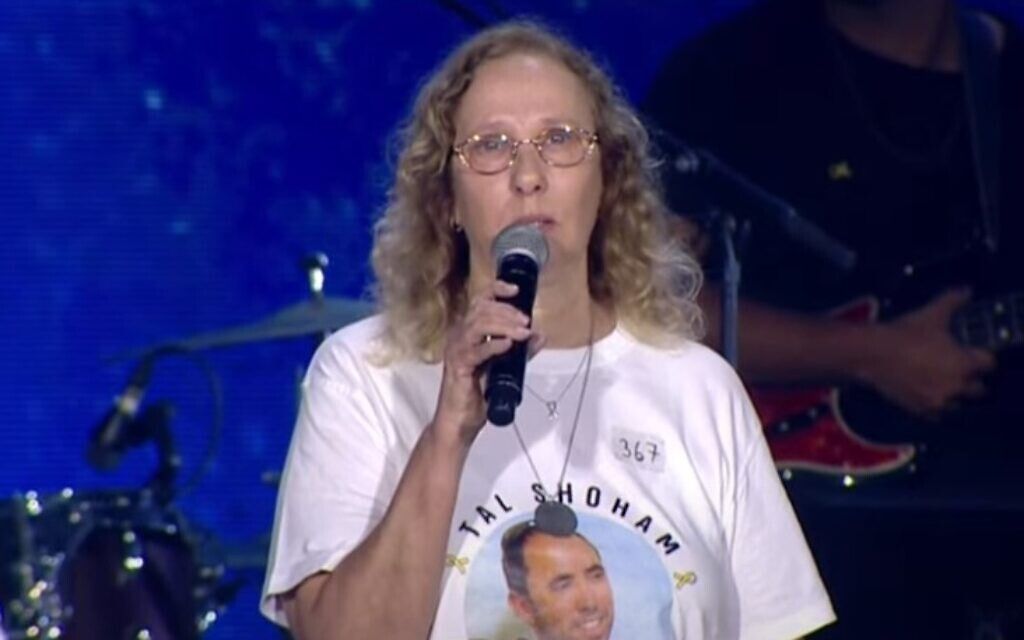
Nitza Corngold, mother of hostage Tal Shoham, speaking about her son during the ceremony for the bereaved families, October 7, 2024. (Screen capture)
Tal’s wife, children, mother-in-law and other family members were taken hostage and released at the end of November.
“His children, Naveh and Yahel, keep asking where their father is, asking if he will be very old when he returns, asking what country he is in,” said Nitza, who called the 7 October of “Shoah”.
“The whole nation is waiting for the next step, our rehabilitation. We know it in our minds, in our hearts, in every cell of our body: there will be no rehabilitation without the return of the hostages. Everyone,” she added.
Once again, the crowd applauded – the second time they have done so on Tuesday evening.
“I call on all world leaders to make the immediate release of the hostages – all the hostages at once – a priority on their agenda. »
“And a last word for my son, Tal, my Taltaloni. If you can see or hear me, we miss you very much and we are doing everything, everything, to bring you and the other hostages home. We are not abandoning you. To abandon them is to abandon ourselves. »
Maysam Abu Wasel Darawshe also spoke about her brother, Awad, an ambulance driver killed at the Nova Festival on October 7.
She explained that he was the youngest in the family. “Our light, our life, a being who filled the house with warmth and love”, a dreamer who wanted to be a doctor or a chef, to have his own house and live near his parents. »
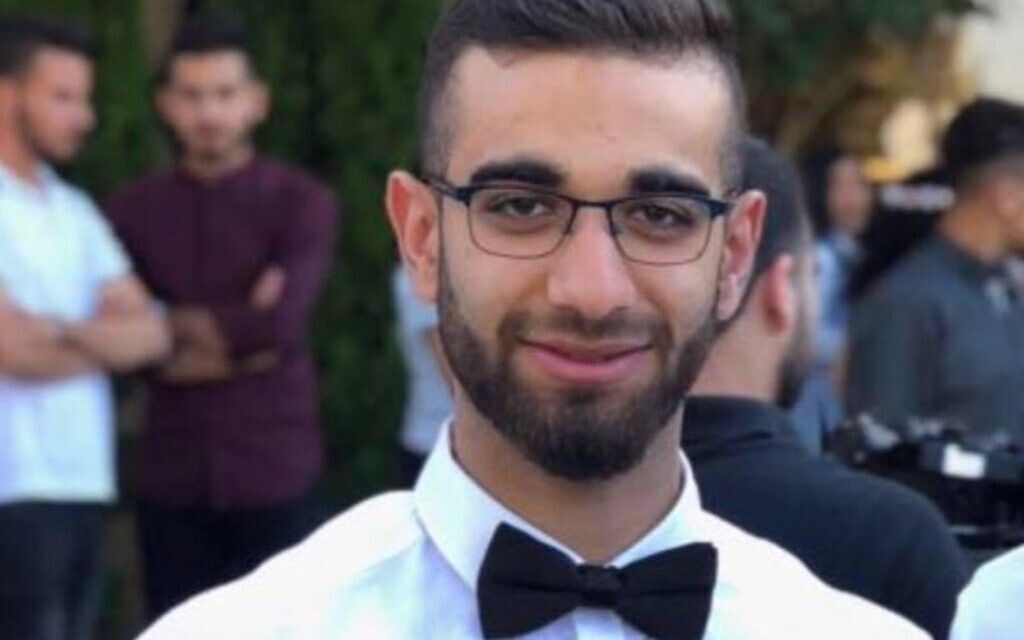
Awad Darawshe, a rescue worker, murdered by Hamas terrorists while treating people with gunshot wounds during the Supernova Festival near the Gaza Strip, October 7, 2023. (Screen capture)
He remained at the rave-party to provide assistance to victims during the Hamas assault. But this time, when he returned home in the ambulance, there was only his remains, his sister testified.
Abu Wasel Darawshe asked if she could say the words her mother said about her, in Arabic, in the language that that morning was indelibly associated with blood and horror: “Awad was a gift from heaven . His life was brief, but full of meaning. He taught us to love one another, to help one another, and not to let hatred or jealousy affect us. »
The crowd applauded again.
Yonatan Shamriz, the grieving brother who organized the ceremony, was one of the last to speak. He spoke of his beloved younger brother, Alon Shamriz, taken hostage by the Palestinian terrorist group Hamas on October 7 and accidentally killed by Israeli army troops on December 15 along with Yotam Haim and Samar Talalka as they tried to escape.
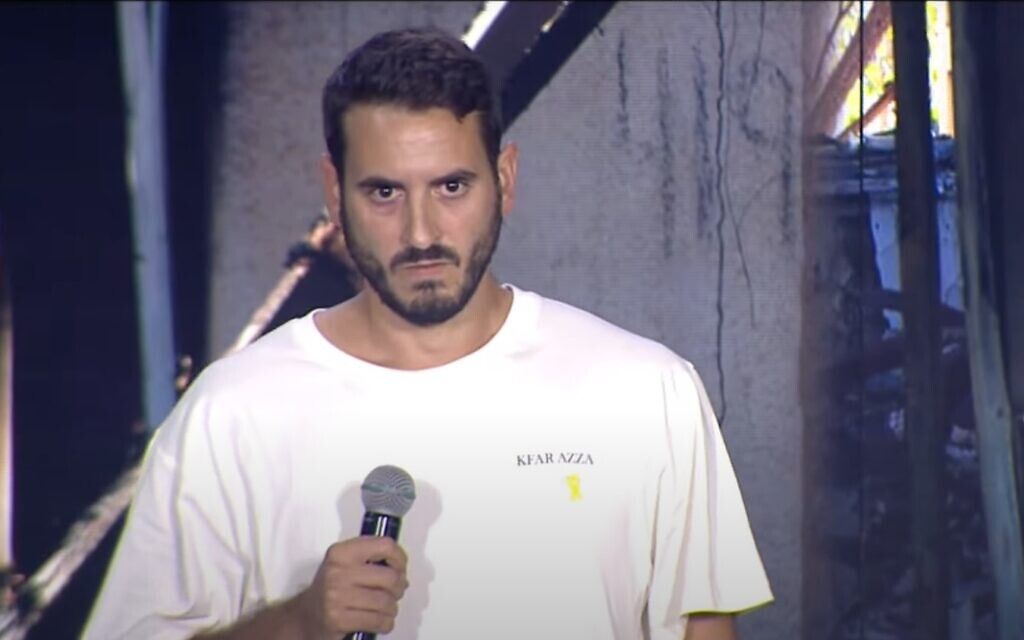
Yonatan Shamriz, whose younger brother Alon Shamriz was taken hostage by Hamas and accidentally killed by Israeli army troops in Gaza, during the memorial ceremony for bereaved families marking one year since the pogrom, October 7, 2024 (Credit: Video screenshot)
Wearing a white T-shirt printed with the name of his devastated kibbutz, Kfar Aza, and a yellow ribbon, Shamriz remembered being in his Mamad – fallout shelter – with his family, holding the door closed against terrorists, kitchen knife in hand, receiving updates on his phone about the ongoing massacre.
“It was a day without an army, without a state, a day when we only had ourselves, the citizens. This is what abandonment looks like,” Shamriz said.
“Instead of standing here as multitudes of the people of Israel, united, we stand here waiting for the next siren. Instead of a state commission of inquiry being set up to investigate this colossal failure, we are asking the questions ourselves and getting no answers. »
“There is no personal example, no vision, no leadership, no responsibility,” he added, to applause from the audience.
Shamriz said her brother, Alon, detained for 65 days in Gaza with Yotam and Samar, navigated a bombed-out Gaza neighborhood for five days.
They wrote a single word on a white sheet: “Help,” Shamriz said. “But that didn’t save them. “
He swallowed hard, trying to get the words out without crying, as the crowd applauded.
Shamriz says he is convinced that a new generation is emerging from the ruins and destruction, a generation that believes in the Israeli spirit, that will rebuild and create a better and more moral country.

